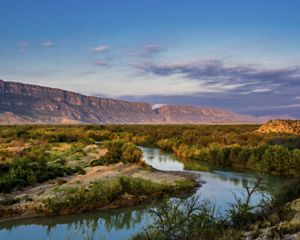Safeguarding the Lifeline of Our Planet: TNC’s Vision for Fresh Water at Ramsar COP15
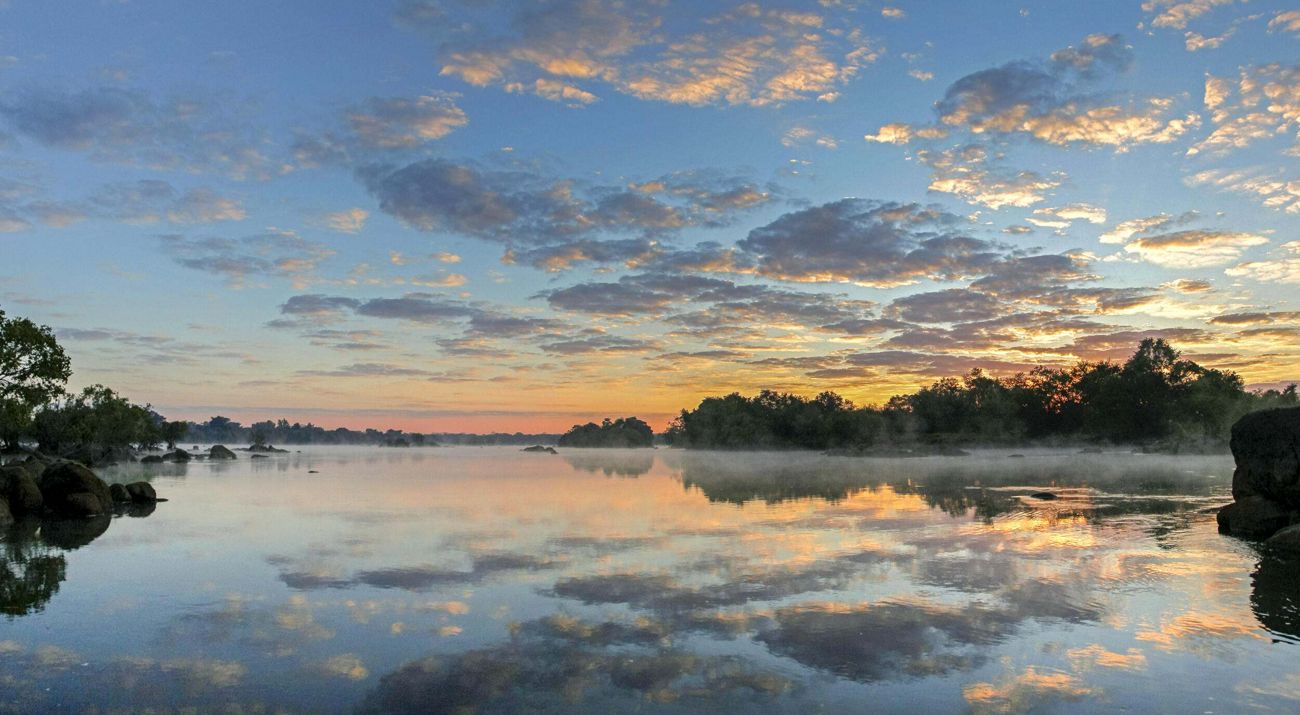
Wetlands are the lifeline of our planet, nourishing ecosystems, sustaining communities and fueling economies. Yet, despite their critical importance, freshwater ecosystems are among the most threatened on Earth. Rivers, lakes and wetlands are disappearing at an alarming rate, taking with them vital biodiversity and the natural resources that billions of people rely on.
At the local, national and international levels, TNC advocates for bold and urgent policy action to elevate freshwater conservation because protecting fresh water is not just about saving nature—it’s about securing a prosperous, safe, healthy future for people and planet. Clean water, climate resilience, food security and biodiversity all depend on healthy wetlands and rivers.
Green Up Your Inbox
Get our latest research and insights about climate & biodiversity challenges, every month.
Sign UpRamsar COP15: A Pivotal Moment
This month, leaders from TNC will be in Zimbabwe, attending the 15th Conference of the Contracting Parties to the Ramsar Convention (Ramsar COP15). The convention on wetlands is the intergovernmental treaty that provides the framework for the conservation and use of wetlands and their resources. This meeting is a key opportunity to reset the global agenda for wetlands and freshwater conservation.
The decisions made at Ramsar COP15 will shape the future of freshwater ecosystems for decades to come. Held under the theme “Wetlands Action for People and Nature,” COP15 brings together governments, scientists, Indigenous leaders and conservationists to forge a path forward. As these leaders convene in Victoria Falls for the negotiations, TNC is advocating for an ambitious vision that protects the rivers, lakes and wetlands that sustain life on Earth.
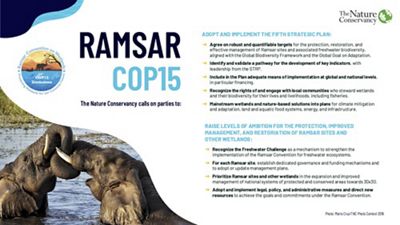
Why Freshwater Ecosystems Matter
Freshwater ecosystems cover less than 1% of the Earth’s surface but support 10% of all known species. They provide drinking water, food, transportation and livelihoods for billions. Wetlands, in particular, act as natural water filters, flood buffers and carbon sinks—making them essential allies in the fight against climate change.
Yet, these ecosystems are in crisis. Since 1970, the world has lost nearly one-third of its freshwater ecosystems, and monitored freshwater populations have declined by an average of 85%. The urgency to act has never been greater.
Investing in the Future of Freshwater Systems
While the stakes are high, we’re energized to see a growing global appreciation for the benefits that flow to our communities and economies when we invest in nature and protect our freshwater systems. Specifically, nature-based solutions are increasingly being recognized for their ability to mitigate water risk and recover freshwater ecosystem. And the size of the opportunity is significant: In its research, TNC has reported that nature-based solutions (NbS) can help reduce the risk of flood and drought in one-third of the places across the globe where these hazards are expected to increase due to climate change. Just as importantly, the world is starting to invest accordingly. TNC and Forest Trends recently published a report, Doubling Down on Nature: State of Investment in Nature-based Solutions for Water Security, 2025, that shows global investments in NbS for water security have doubled over the past decade, reaching USD $49 billion (B) in 2023. That's equal to one-third of the financial flows into global biodiversity conservation (as estimated in 2019).
While these data points offer a glimmer of hope, greater and faster investment in our rivers, lakes and wetlands is needed to ensure they can thrive long into the future.

Africa’s Wetlands: Leading Local Action with Global Impact
Holding the Ramsar COP15 conference in Victoria Falls holds significant meaning to protecting the world’s wetlands. Africa’s wetlands are among the most valuable and vulnerable ecosystems on the planet. Their future depends on strong leadership and smart investments today for a healthy and prosperous future.
TNC’s work across Africa offers powerful examples of how science, community engagement and sustainable finance can restore and protect freshwater ecosystems.
Africa holds some of the world’s most promising wetland models like KAZA, Lake Tanganyika and the Angolan Highlands Water Tower. These landscapes show us what is possible when governments, communities and partners work together.
In Southern Africa, the Kavango Zambezi (KAZA) Transfrontier Conservation Area spans five countries and connects wetlands that support migratory species, buffer communities against floods and droughts, and sustain livelihoods across borders.


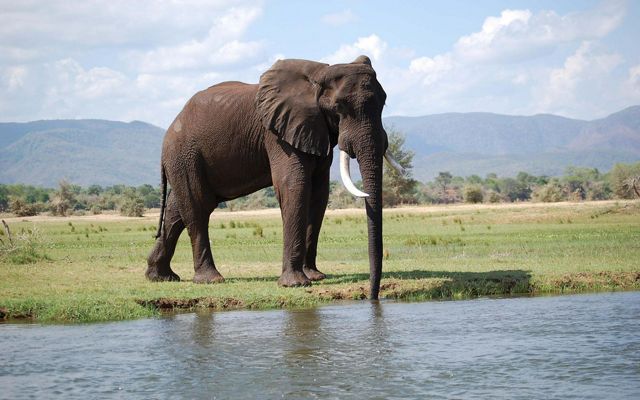
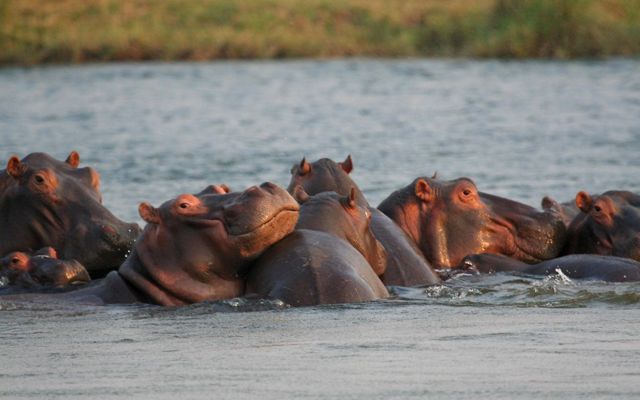
The Angolan Highlands are the source of major rivers like the Okavango and Zambezi. What happens upstream here affects millions downstream across wetlands, cities and farmlands.
In the Okavango Basin, where 95% of the delta’s water originates in Angola, TNC is working with local communities to manage fisheries and forests, guide smart development away from ecologically damaging projects and create long-term financing mechanisms. These efforts are vital to preserving one of the world’s most iconic wetlands and the wildlife it supports.
Quote
The decisions made at Ramsar COP15 will have long-term implications for how freshwater ecosystems are valued, managed and protected for years to come.
Stretching across four countries, Lake Tanganyika and its wetland systems including the Malagarasi-Muyovozi complex are critical for clean water, local fisheries and biodiversity. In Tanzania, the Tuungane Project on Lake Tanganyika has empowered more than two dozen lakeside villages to enforce sustainable fishing practices through Beach Management Units. This model is now being scaled across the entire four-nation lake basin.
Gabon’s Bas Ogooué wetlands are one of Central Africa’s most ecologically rich systems, vital for storing carbon, regulating floods and protecting wildlife like the endangered African manatee. They are one of the most ecologically significant wetland systems in Central Africa. TNC is working with the Gabonese government to integrate freshwater priorities into its 30x30 conservation commitment. This includes developing a national hydroelectric planning system to minimize environmental impact and supporting community-led fishing cooperatives.
In Zambia’s Greater Kafue Ecosystem, TNC collaborates with communities and government agencies to establish fisheries co-management structures, build capacity for sustainable harvesting and promote integrated action plans for land and water resources.
The decisions made at Ramsar COP15 will have long-term implications for how freshwater ecosystems are valued, managed and protected for years to come. The Nature Conservancy is contributing to a broader global effort to ensure that wetlands and freshwater systems are fully integrated into conservation, climate and development priorities. Continued collaboration, clear targets and adequate resources will be essential to achieving meaningful progress.
Restoring and protecting wetlands is not just good for nature, it is essential for economic stability, water security and climate resilience.


